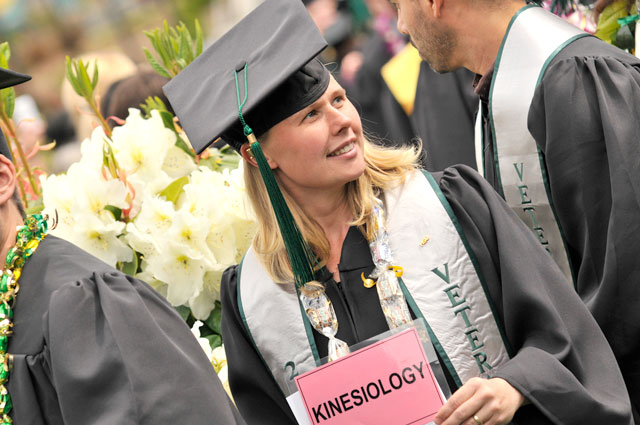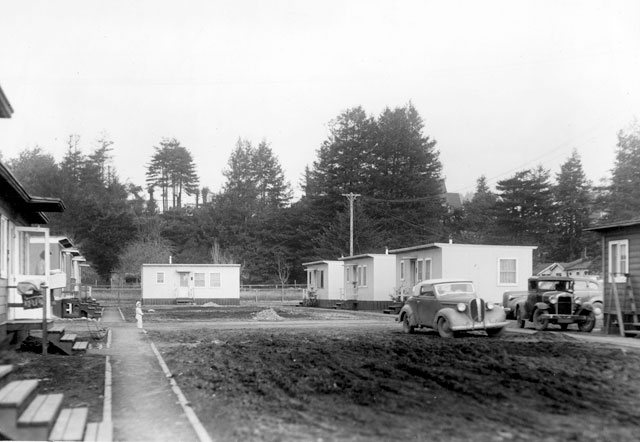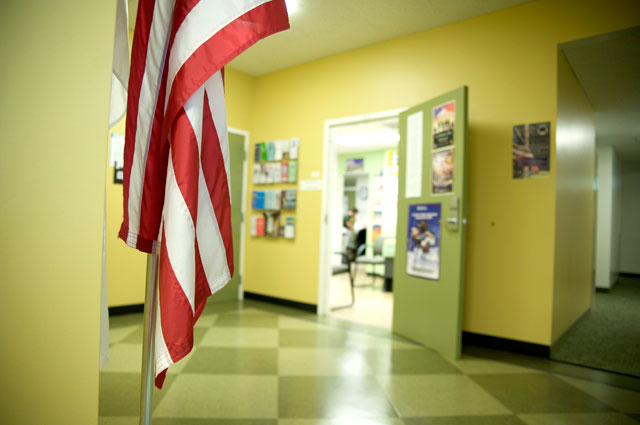
Some 20 years later, campus mobilized to support servicemen stationed in the Humboldt area and bolster the connection to the estimated 586 members of the Humboldt State community who were stationed overseas. A letter-writing campaign, spearheaded by President Arthur Gist, helped maintain the strong community bonds even as servicemen were deployed across the globe. According to William Tanner, author of the HSU campus history, “A View from the Hill,” one of the unstated purposes of the newsletter was to entice military personnel to return to Humboldt and complete their degrees.
In the years following the war, the influx of veterans was immediately felt. The Servicemen's Readjustment Act of 1944, known as the G.I. Bill, meant millions of military personnel would seek their educations in the postwar era, and Humboldt State would get its fair share of new students. To meet demand, the school’s academic programs were realigned in two areas under two deans: The dean of education and the dean of arts & sciences.
By 1947 enrollment reached 745 from a low of 176 in 1944. Campus erected so many temporary buildings to house new students—many of them veterans taking advantage of the G.I. Bill—that locals dubbed it G.I. Village.

Large numbers of veterans, many with families and wives, did somewhat change the flavor of campus life, which had been marked by intense school spirit and broad participation in college events. Tanner writes that most veterans showed more “interest in finishing degrees and moving on to jobs and ‘normal’ lives.”
The Lumberjack published a “Veteran’s Corner” column, veteran’s wives formed a G.I. Wives’ club and support programs were implemented to reach out to veterans and educate them about military benefits, provide career assistance, special classes and counseling. Football finally resumed after a hiatus that began in 1942, and Redwood Bowl was outfitted stadium lights paving the way for night games.
The student veterans did well academically too. According to a 1949 Lumberjack article, statistics collected by the State Department of Veterans Affairs indicates veterans earned a “straight B” average, surpassing the average grade earned by the student body.
The campus would again feel the effects of wartime, when the Korean War began in 1950, with enrollment declining for the duration, 1950 to 1953. The end of the Korean War brought another influx of students, which coincided with a nearly two-decade run of constant expansion for the campus.
The Vietnam War era marked a period of student protest and activism on campus. Despite student opposition to the war, the campus continued to provide academic and student services for veterans.
In the early 1970s, the campus opened the Office of Veterans Affairs to assist veterans with the transition from military to academic life. The office published the Veterans Gazette, an informational pamphlet that helped veterans navigate the many benefits they were entitled to—everything from finding dental treatment, to handling pensions and securing a home loan.
In 1975, students completed the first session of the Veterans Education Assistance Program. It allowed students to take review courses before entering college. The program was a precursor to Veterans’ Upward Bound, which came to campus in 1979. This federally funded program helped students get assistance in math, writing, reading, speech and science in addition to academic planning.

In 2008, the campus launched its Veterans Enrollment and Transition Services Office, which is expressly designed to smooth the transition from military to civilian life and provide veterans with what they miss the most: soldierly camaraderie.
Today, HSU continues to deploy high quality services for veterans from all branches of the military. The university’s commitment to aiding veterans in their transition to civilian life has led G.I. Jobs to name HSU a military friendly school five years running.